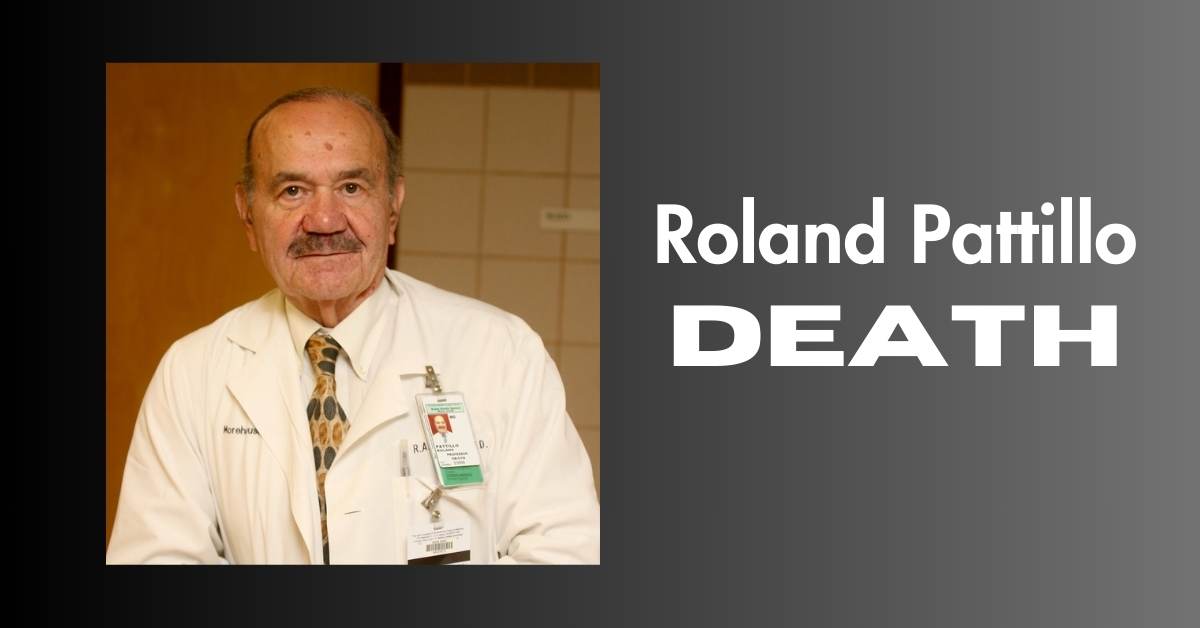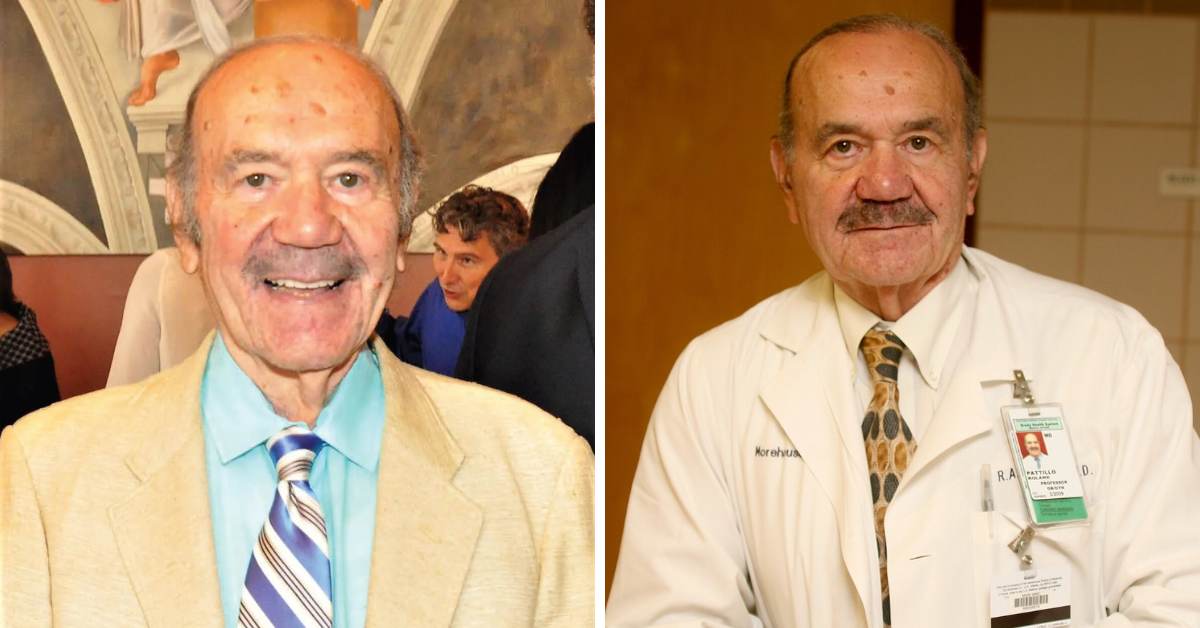The medical world lost a trailblazer and a true advocate when Dr. Roland A. Pattillo passed away on May 3, 2023, at the age of 89, in his home in Newnan, a suburb of Atlanta. His departure, which went largely unreported at the time, marked the end of an era dedicated to championing the legacy of Henrietta Lacks and bridging the gap between science and humanity.
Dr. Pattillo’s death, brought to light by an article in The Nation magazine in late September, leaves a void that will be felt throughout the medical and social justice communities.
A Life Devoted to Honoring Henrietta Lacks
Dr. Roland Pattillo, a renowned gynecologic oncologist, had a career spanning several decades in the fields of treating and researching female cancers. However, one story haunted him throughout his life—the extraordinary tale of Henrietta Lacks. Henrietta, an impoverished Black woman, succumbed to cervical cancer in 1951, but her cells, known as the HeLa cell line, continued to thrive, making an indelible mark in medical history. These cells were instrumental in developing the polio vaccine, HIV treatments, and numerous other medical breakthroughs.
Dr. Pattillo’s journey with the HeLa cells began during his time as a graduate student. He had also been a fellow at the Johns Hopkins lab in Baltimore, where the HeLa cells were first cultured. What set him apart from many other scientists was his unwavering focus on the human being behind those remarkable cells—Henrietta Lacks, who had left a family behind. Dr. Pattillo felt a deep sense of responsibility to honor her contributions to science and to bring her family into the fold.
In the early 1990s, Dr. Pattillo arrived at the Morehouse School of Medicine in Atlanta, a historically Black institution. There, he organized a symposium on the HeLa cells, dedicating it to Henrietta Lacks. This symposium, which began as a one-time event, has since become an annual gathering. The inaugural event in 1996 addressed the disparities in the survival rates of Black and white cancer patients, and Dr. Pattillo successfully petitioned the mayor of Atlanta to declare October 11th as Henrietta Lacks Day.
Dr. Pattillo also sought to involve Henrietta’s family in the event. He reached out to Henrietta’s daughter, Deborah Lacks, who had spent most of her life wondering about her mother and the legacy she had left behind. Dr. Pattillo was not just interested in honoring Henrietta; he aimed to be the first scientist to explain to Deborah what had truly happened to her mother.
Do you remember which famous people have passed away? For more on their deaths, read the following articles:
- Judy Balaban Cause of Death: How Grace Kelly’s Bridesmaid Died?
- Burt Young Cause of Death: The End of a Hollywood Legend’s Remarkable Journey!
An Advocate for Henrietta Lacks’s Family
Deborah Lacks, who was barely 2 years old when her mother passed away, had longed to understand her mother’s story and the significance of the HeLa cells. Dr. Pattillo’s compassion and commitment led him to become a pivotal figure in Rebecca Skloot’s best-selling 2010 book, “The Immortal Life of Henrietta Lacks.” He provided a voice for Deborah and offered her the recognition and respect she deserved as Henrietta’s daughter.
Henrietta Lacks, a 30-year-old mother of five, had sought treatment at the Johns Hopkins Hospital’s gynecology clinic, a rare institution that catered to Black patients during the Jim Crow era. She was battling a highly aggressive cervical tumor that would ultimately claim her life.
Some of her tumor tissue found its way to George Otto Gey, a cancer researcher at the hospital, who had been struggling to cultivate human cells for years. Henrietta received treatment for her cancer, but it proved futile, and she passed away at the age of 31. The HeLa cells, however, defied death and continued to replicate at an astonishing rate.
Dr. Gey coined the term “HeLa” for these cells, and they gained the moniker “immortal” cells due to their persistence. These cells went on to revolutionize modern medicine, contributing to the development of the HPV vaccine and other significant advancements.
Despite the scientific community’s enthusiasm for HeLa cells, Henrietta Lacks’s family, particularly Deborah, felt horrified and bewildered by the tale of the HeLa cells. Dr. Pattillo was the first to reach out to them and assuage their fears that Henrietta had been denied proper care.
In 1999, Rebecca Skloot, a former veterinary technician and a graduate student in creative nonfiction, discovered a paper Dr. Pattillo had written for the inaugural HeLa conference in 1996. This discovery prompted her to delve deeper into Henrietta’s story. Dr. Pattillo, initially skeptical, eventually agreed to introduce her to Deborah Lacks and played a crucial role in ensuring that Skloot approached the family with genuine intentions.
Dr. Pattillo provided guidance and support to Skloot as she embarked on her journey to uncover the truth. He emphasized the importance of making sure the story was accurate and served on the board of the foundation created by Skloot to support the education and health needs of Henrietta Lacks’s descendants and others who had been subjects of research without their consent.
Deborah Lacks, tragically, passed away in 2009, one year before the publication of Skloot’s book. Nevertheless, Dr. Pattillo remained connected with the family until his own passing. His presence and support had a lasting impact on the family, instilling trust and compassion that would span generations.
Shirley Lacks, one of Henrietta Lacks’s daughters-in-law, expressed her gratitude by stating, “He put our family on the map. If Dr. Pattillo hadn’t talked to Deborah, and Deborah hadn’t talked to Rebecca, the family would not have known as much about Henrietta’s life and her contributions to mankind. I thank Dr. Pattillo for just being there, especially for Deborah. He had a very calming spirit, but he was firm in his belief.”
A Legacy of Compassion and Advocacy
Roland Anthony Pattillo was born on June 12, 1933, in DeQuincy, Louisiana. His parents, Rhena and James Pattillo, instilled in him a strong sense of compassion and dedication. He earned a Bachelor of Arts degree from Xavier University of Louisiana, a historically Black Roman Catholic institution, and received his medical degree from Saint Louis University in 1959.
Dr. Pattillo completed a fellowship in gynecologic oncology at Johns Hopkins under Dr. George Otto Gey in 1967 and later did his residency at Marquette University Medical School. He spent the next three decades as a lecturer, researcher, and practitioner before joining Morehouse School of Medicine in the early 1990s. He retired in 2013.
Dr. Pattillo’s commitment to honoring Henrietta Lacks’s legacy extended to giving her a well-deserved gravestone. In 2010, he and his wife, Patricia O’Flynn Pattillo, raised the funds to purchase a pink granite slab shaped like a book, which now marks her final resting place. The inscription reads, “Here lies Henrietta Lacks (HeLa). Her immortal cells will continue to help mankind forever.”
Dr. Roland Pattillo’s legacy is one of compassion, advocacy, and a tireless dedication to bridging the gap between science and humanity. His work, centered on getting Black women access to care and making them feel heard and seen, will continue to inspire generations to come.
Dr. Pattillo is survived by his wife, Patricia O’Flynn Pattillo, his children, Catherine, Mary, and Patrick Pattillo, Sheri Pattillo Johnson, his stepson, Todd Thomas, a sister, Carolyn Pattillo Davis, and eight grandchildren. His previous marriage to Marva Parks ended in divorce.
In the wake of his passing, Dr. Roland Pattillo leaves behind a legacy that transcends time—a legacy of compassion and unwavering commitment to honoring the life and contributions of Henrietta Lacks, a legacy that will continue to impact generations.

